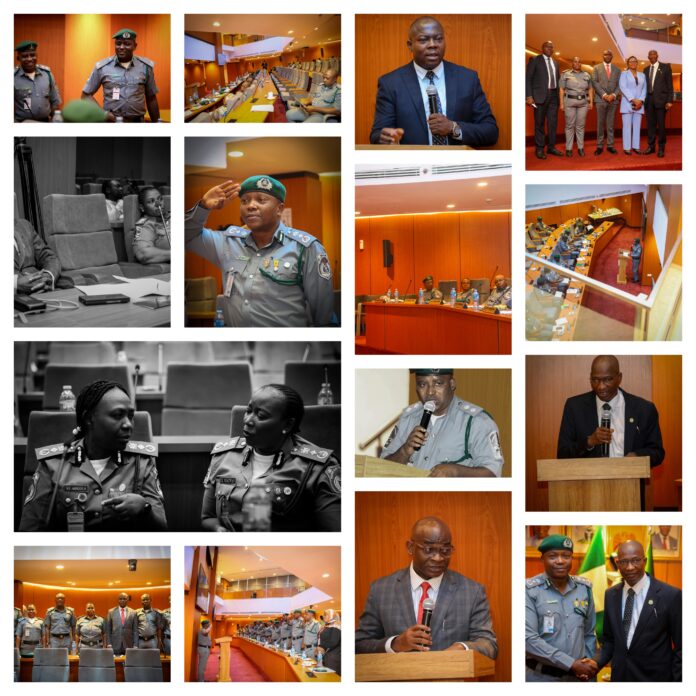The Nigeria Customs Service (NCS) has reaffirmed its commitment to transparency and accountability through a sensitisation programme organised in partnership with the Independent Corrupt Practices and Other Related Offences Commission (ICPC).
The programme, which was held in Abuja, was designed to enhance the operational effectiveness of the Service’s Anti-Corruption and Transparency Unit (ACTU).
Declaring the event open, Deputy Comptroller-General Greg Itotoh, who represented the Comptroller-General of Customs, Adewale Adeniyi, said the fight against corruption within the Service is a continuous priority. He described the sensitisation as part of efforts to strengthen internal controls and entrench a culture of integrity.
“Having you here today demonstrates our resolve to fight corruption. Your presence encourages us and reinforces our determination to enforce the anti-corruption initiatives already in place,” he stated.
Itotoh added that the knowledge gained from the programme would be cascaded to other officers, inspiring improved service delivery. He stressed that Customs, with stakeholder support, would sustain the fight against corruption until it is eradicated.
In his remarks, ICPC Chairman Musa Aliyu, represented by Olusegun Adigun, commended the leadership of Customs for prioritising integrity. He described corruption as a major impediment to national development, eroding trust and weakening governance.
“As we engage in today’s discourse, let us remember that every act of integrity contributes to a stronger, more transparent society. Let this workshop serve as a catalyst for renewed commitment, innovation and proactive engagement in the fight against corruption,” he said.
The ICPC further urged Customs officers to remain steadfast in promoting ethical practices and called for sustained management support for ACTU activities.
The programme featured paper presentations, including “Understanding the ACTU Standing Order 2023” delivered by an ICPC official, and “Preventive Strategies in Combating Corruption in Public Institutions” by Richard Bello. Both papers underscored the need for proactive institutional reforms and preventive measures against misconduct.
Closing the session, Comptroller Emmanuel Oshoba of the Customs Intelligence Unit reiterated the Service’s commitment to collaboration with the ICPC, describing transparency and accountability as central to Customs’ modernisation agenda.
“We are deeply grateful to the ACTU for initiating and driving this programme. Your tireless efforts to promote accountability and good governance have not gone unnoticed. You remain the moral compass of our institution,” he affirmed.


